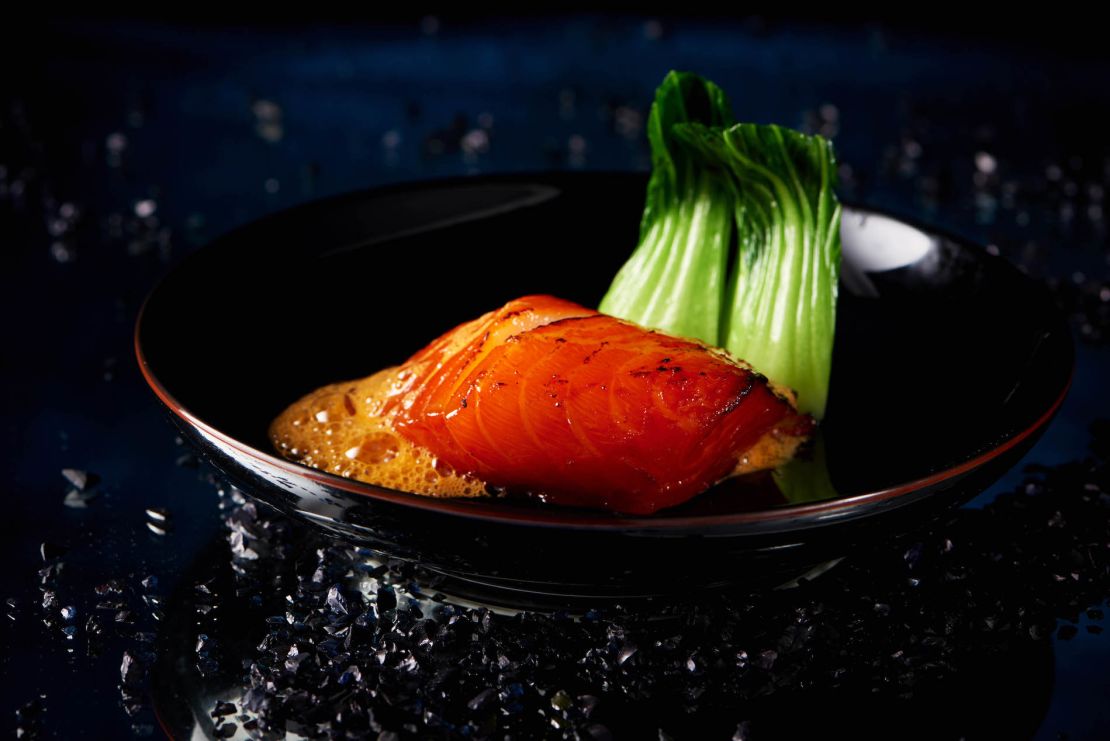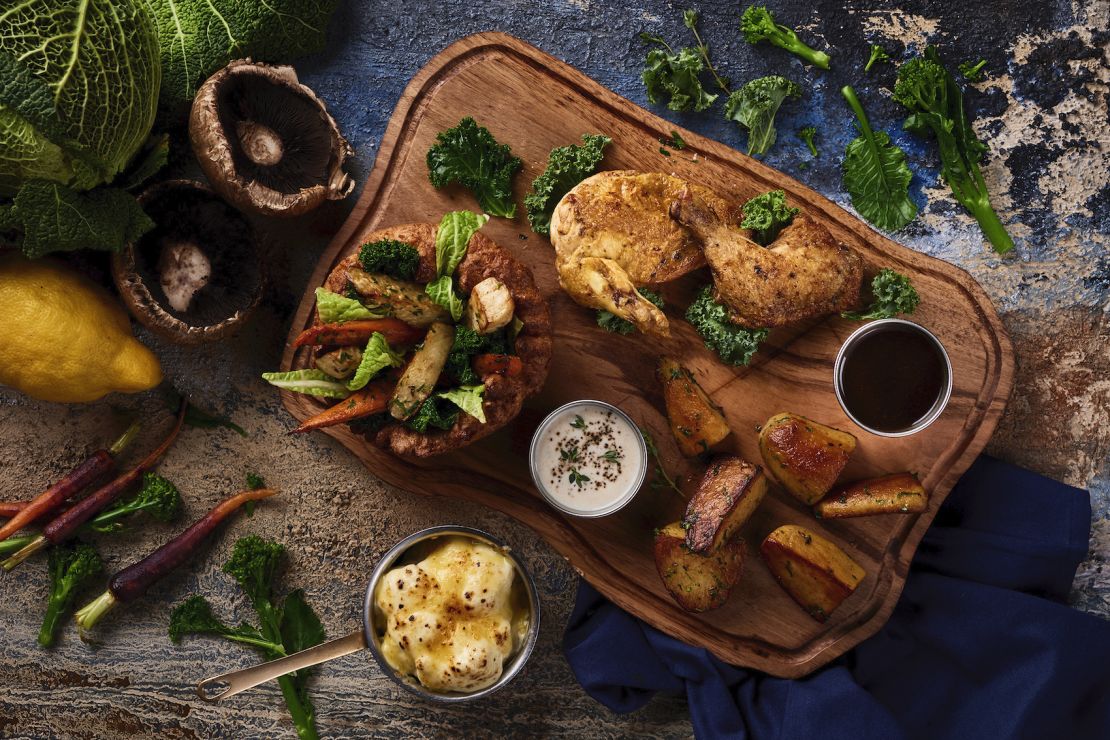Editor’s Note: CNN’s series often carry sponsorship originating from the countries and regions we profile. However, CNN retains full editorial control over all of its reports. Our sponsorship policy.
Many restaurants around the world have relied on takeout to stay in business while under lockdown. But in a city known for its fine dining, some of Dubai’s top eateries are making gourmet home delivery a regular offering.
In March, after Dubai closed all its restaurants to control the spread of coronavirus, hotel resort Atlantis, The Palm introduced home delivery at four of its high-end restaurants.
The dishes being delivered from Nobu Dubai, Hakkasan, Gordon Ramsay’s Bread Street Kitchen & Bar, and Ronda Locatelli go far beyond standard takeout fare; they include Wagyu beef with anticucho miso sauce from Nobu for a whopping AED 525 ($143) and grilled Chilean seabass with Chinese honey from Hakkasan for AED 248 ($68).
The move has been such a success that even though all four restaurants have now reopened, they will continue to serve up their signature dishes in the comfort of customers’ homes.
Read: Lockdown art shows what people are really thinking
“Home delivery of high-end restaurants is something that I believe is here to stay, certainly for the next three to six months,” said Daniel Follett, the director of food and beverage for Atlantis, The Palm. “The longer that this global situation continues, I think there is going to be a broader, long-term change in dining habits that the (restaurant) industry will have to adapt to.”

Monique Naval, a senior analyst at Euromonitor International, who explores evolving trends in consumer food service, said high-end food delivery has attracted customers who would normally feel intimidated by going to Dubai’s luxury restaurants.
She added that demand may continue, as the pandemic reduces our appetite for eating out. “Going forward, I expect that people will have less motivation to go out to a restaurant, and to dine-in (instead),” Naval said.
Adapting to deliveries
Delivering gourmet cuisine brings certain challenges. To ensure the quality and appearance of each dish is not compromised, the restaurants sourced special packaging made from sustainable materials. They also had to exclude certain items.
“We use very high-quality ingredients, but don’t want customers to wait too long before they are eaten,” said Damien Duviau, the head chef at Nobu Dubai. “It was important for us to select dishes that could stay fresh longer.”
A few dishes even have some assembly required. A roast dinner from Gordon Ramsay’s Bread Street Kitchen & Bar comes deconstructed, along with instructions on how to properly plate it as they would at the restaurant.
“There are many dishes that would be finished with a sauce or a garnish in the dining room, whereas now that element of the completion of the dish needs to be finished by the guest,” said Follett.

Follett added that home delivery has enabled many of the restaurant’s staff to continue working. Most of the front of house staff were trained to handle deliveries, pack orders, and deal with delivery drivers.
Other Dubai restaurants such as LPM Restaurant & Bar and Zuma – which aren’t part of Atlantis, The Palm – are also continuing to offer the home deliveries they introduced during the lockdown.
Lasting change?
The UAE has now eased its restrictions, allowing restaurants to open, as long as they position tables at least two meters apart and do not exceed 30% capacity. Restaurants are also required to be disinfected throughout the day, and must use single-use cutlery.
Read: Keeping shoppers safe at one of the world’s busiest malls
Analyst Naval expects high-end restaurants to take a significant financial hit due to Covid-19, but believes they will “eventually overcome this.”
But she believes the pandemic might ultimately have one positive effect on restaurant goers.
When the UAE’s restrictions are fully lifted, Naval anticipates diners will be more appreciative when treating themselves to a luxurious meal out.
“On a consumer side, I expect people to become more sympathetic and to be more mindful of the meal that they are eating, how it’s prepared, and how they interact with the servers and waiters,” she said.









